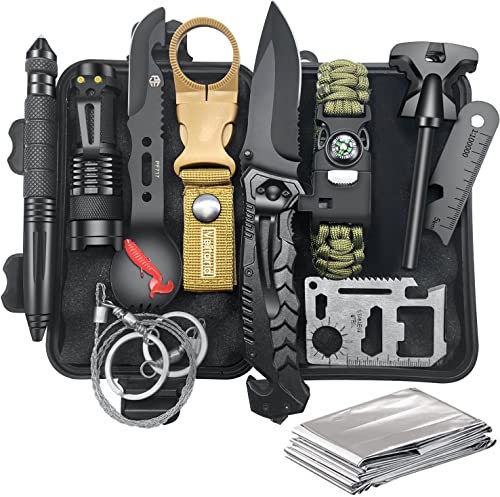Yup over on SUK many of us developed a list of useful recoverable materials and where they are stored for easy access after THTF.
This snippet is an extract from the little basic prepping guide E booklet I write for free distribution.
MAPPING & ROUTE PLANNING
When preparing to move to a RETREAT or even on EXPEDITION TRAINING you must make careful notes of certain important factors in planning your journey, Also when in location at your base or retreat you need to record for future use some vital information.
Listed below are some of the most important items that should be included on your maps.
1 Primary access route to and from your home or retreat
2 Secondary / alternative routes to your destination
3 Escape paths and alternate routes along your route to avoid hazards/ambushes/checkpoints/bad weather etc. etc.
4 Water and possible food supplies /and pre-arranged caches along your routes.
5 Water supplies around your retreat are they likely to remain that way are they pure? (Potable).
6 Escape routes from the retreat in case of extreme weather or overwhelming opposition
7 Natural hazards, bogs, rivers, marshland, large forests, old mine workings, rock faces etc.
8 Manmade hazards, bomb sites, fallout zones, mine fields, militarised zones, refugee camps, check points, known patrol routes, telecoms sites, (TELECOMS SITES =communication sites EG radio masts, communications/radio / microwave relay towers and broadcasting masts, telecommunications facilities, military network communications masts, broadcasting stations both civil/military and commercial etc. etc.)
9 Towns with populations exceeding available resources for self-reliance, etc
10 Strategic targets, Bridges, factories, refineries, garrisons, police stations, airports, chemical and steel plants, reservoirs, road and rail junctions, marshalling yards, power stations, etc.
11 Climatic hazards depending on time of year
12 Thugs, police, military both foreign and domestic, paramilitaries, refugees, renegades, looters
13 Allies, Red Cross, civil defence groups, other survival groups that are friendly.
Resources = Food stores, supermarkets, fuel dumps, grain stores, petrol stations and POL dumps, (Pol dumps = Petrol Oil and Lubricating dumps = fuel storage and distribution facilities, civil and military, petrol stations, oil storage facilities, refineries and crackers, wagon depots, rail refuelling depots, gas storage and distribution facilities, methane generator facilities (pig farms and ground fill sites), camping gas suppliers, butane / propane/map gas (Calor, Gaz, Coleman,Taymar etc)
Water supplies, tool stores, gun and sports shops, armouries, builders merchants, isolated shelters, farms, caves, tunnels, underpasses, fish farms, rivers and streams, colonies of cattle / small and large game etc.
A warning about Supplies.
Do ensure that when you approach sources of supplies that they are not already under someone else’s control, do not take unnecessary risks if necessary go elsewhere or try again another day.
Avoid confrontation and unnecessary contact until things get as normal as possible, be prepared to barter for supplies. It may be very prudent to simply OBSERVE the target for 24 hours before moving in to see if the place is occupied.
RECORDING USEFUL RESOURCES
Identify and keep records of any useful resources that may be useful to your group or family after the disaster.
Some materials like coal or building materials can frequently be left in place and they are unlikely to come to any harm, unless of course such materials are going to be in short supply.
Identify the following in your area
Recoverable sources of Firewood, Coal & Coke, Peat, Heating and fuel oil, Bottled Gas (butane and propane). Check coal yards, railway sidings, gas bottled refilling centers etc.
Petroleum Products, Petrol, Diesel, Avgas, Paraffin (Kerosene), Hypoid, Lubricants.
(Most petroleum products will need treating with preservatives) Petrol stations, refineries, transport depots.
Building materials, lumber, bricks, cement, and aggregates etc. Builder’s yards, DIY centers, quarries, building sites etc
Water Supplies, Tanks, ponds, reservoirs, streams, wells (including capped ones) artesian and aquifer supplies,
Water filtration and purification equipment and stockists
Identify locations of fast flowing or fast falling water that could be used to turn generators, mills, etc.
Food stores, supermarkets, distribution centers, regional warehouses, grain stores, etc
Free range herds of cattle, sheep, chickens, deer etc
Rabbit farms, Rabbit warrens, Fish farms, angling clubs.
Tool stores, engineering suppliers, plant hire agencies, camping, caravanning and outdoor stores, sports shops, gun shops, gun smiths, boat yards, marinas, ships chandlers preserved railways etc
Remote housing that is conducive to self-reliance, IE has things like functioning large chimneys and fire places, ultra insulated, double/ triple glazed, multi-fuel heating and cooking facilities, has a well or other clean water supply, solar panels, wind turbines, methane digesters, local supplies of fuel, defendable etc other facilities like outdoor residential centers, outward bound centers, alternative technology centers, camping hostels, retreats etc are worth considering.
Check out footpaths, bridle ways, navigable water ways, rail lines, broadcasting masts, radio masts, wind farms, etc.
Please remember that in survival INFORMATION is not only power, but a lifesaver as well.


















































